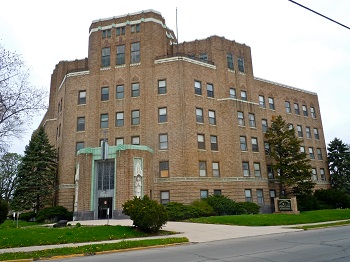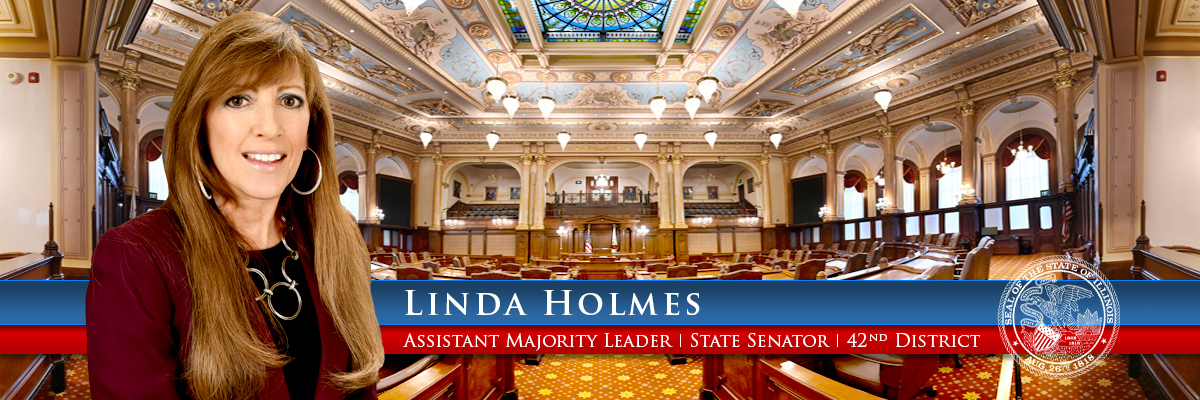
Gov. Rauner signs ‘Beagle Freedom Bill’
- Details
- Category: Uncategorised
SPRINGFIELD — Legislation to improve the adoption process for research dogs and cats has been signed into law. State Sen. Linda Holmes, D-Aurora, introduced the legislation, which would require public research institutions in Illinois to have an adoption policy in place for dogs and cats used in testing rather than euthanizing them immediately.
“Last General Assembly, the ‘Beagle Freedom Bill’ sparked an important debate around the humane treatment of scientific research animals,” Holmes said. “We went back to fix a few problems with the bill to bring it back this year. The new law reflects all of that work, ensuring that an animal is given a chance at a life outside of a laboratory without overregulating scientific research.”
The new law requires publicly-funded institutions to have an adoption plan for animals deemed eligible by a veterinarian before euthanasia is an option. It does not force research institutions to find a home for each animal, nor does it ban euthanasia outright.
The legislation is part of a nationwide initiative led by the Beagle Freedom Project, so named because dogs of that breed are commonly used in scientific research. The legislation applies to cats used in research as well. Similar legislation has already been passed in California, New York, Minnesota, Connecticut and Nevada.
The measure, Senate Bill 1884 was signed into law by Gov. Bruce Rauner today. It takes effect immediately.

Business development tax credit extended into 2021
- Details
- Category: Latest
SPRINGFIELD -- Legislation that would increase business development opportunities in downtown Aurora was recently signed into law by Gov. Bruce Rauner. The governor approved a four-year extension of the River Edge Historic Preservation Tax Credit last Friday. State Sen. Linda Holmes (D- Aurora) was the bill’s chief co-sponsor.
“Through bipartisan cooperation, we passed a law that will improve the small business climate in Aurora,” Holmes said. “By extending this tax credit, we are helping job-creating projects to get off the ground while also incentivizing future business development in empty buildings downtown.”
The Historic River Edge Tax Credit was created in 2011 to provide projects with a tax credit for the redevelopment of historic structures in River Edge Redevelopment Zones. The credit covers 25 percent of the rehabilitation costs for a business in a historic building. Friday’s bill signing preserves the tax credit through 2021.
In Aurora, the credit helped with the redevelopment of St. Charles Hospital into senior housing. Other proposals include transforming the Hotel Arthur and the Stanley Furniture buildings into a mix of residential and commercial properties.
“The River Edge Tax Credit is an important tool for creating jobs and revitalizing the community,” Holmes said. “I appreciate the local leadership and advocates who made the tax credit extension a reality.”
In addition to Aurora, the tax credit is available in Rockford, Peoria, Elgin and East St. Louis.
The legislation, Senate Bill 1783, is effective immediately.
Holmes votes to override Rauner’s veto of education funding reform legislation
- Details
- Category: News
SPRINGFIELD – The Illinois Senate voted today to override Gov. Bruce Rauner’s veto of the legislature’s school funding reform measure. State Sen. Linda Holmes, D- Aurora, was one of the senators to cast a vote against the changes put forth by the governor.
“Today, my colleagues and I voted against chaos, uncertainty and divisiveness by overturning Governor Rauner’s veto of an education funding reform effort,” Holmes said. “After 20 years of work toward a fairer funding model, we are closer than ever to an equitable system that gives millions of dollars in new funding to every school district in the state without creating winners and losers among schools.”
According to estimates from education funding reform advocates, schools in Holmes’ district would stand to gain millions of dollars under the Senate’s version of the proposed education funding law. Aurora East Unit School District 131 would gain over $13 million, Indian Prairie Community Unit School District 204 would gain over $800,000 and Oswego Community Unit School District 308 and Aurora West Unit School District 129 would both receive over $4.7 million in new funding.
Another provision contained in Rauner’s veto would punish municipalities for using tax increment financing districts (TIFs), a tool commonly used by local governments to alleviate blight and create jobs. Rauner’s modifications would account for TIF revenue that is usually unavailable to school districts when dedicating funds, which would result in school districts in municipalities that use TIFs receiving less money from the state.
“The governor reached well beyond the scope of this legislation to include this harmful, anti-business provision in his veto, which makes little sense after all of his talk about bringing good jobs to Illinois,” Holmes said.

Illinois bans elephants in traveling exhibitions
- Details
- Category: Latest
SPRINGFIELD – Gov. Bruce Rauner has signed into law a bill banning the use of elephants in traveling exhibitions including circuses. The measure was sponsored by State Sen. Linda Holmes, D-Aurora.
“African and Asian elephants are endangered species,” Holmes said. “Traveling circuses are not able to properly care for elephants and as a result, elephant exhibitions in Illinois have been found to be in violation of the Federal Animal Welfare Act several times. Allowing these inhumane practices to continue would be irresponsible and poor stewardship of such impressive animals.”
Supported by the Humane Society, the ban on traveling elephant exhibitions will put an end to a practice that has been dying out in recent years due to pressure from the public. The legislation would ban elephants in traveling exhibitions. It would not ban elephants in zoos or any other permanent institution that ensures adequate conditions for the animals.
"For too long, elephants used in circuses have endured cruel training, constant confinement, and deprivation of all that is natural to them,” said Marc Ayers, state director for The Humane Society of the United States. “The public has come to see that these animals are victims, not willing performers. Illinois has taken a monumental step in ending this outdated form of entertainment and we urge other cities and states to follow suit.”
Senate Bill 1342 was signed into law by Gov. Rauner on Friday. The law will take effect starting January 1, 2018.
More Articles …
Page 62 of 81



